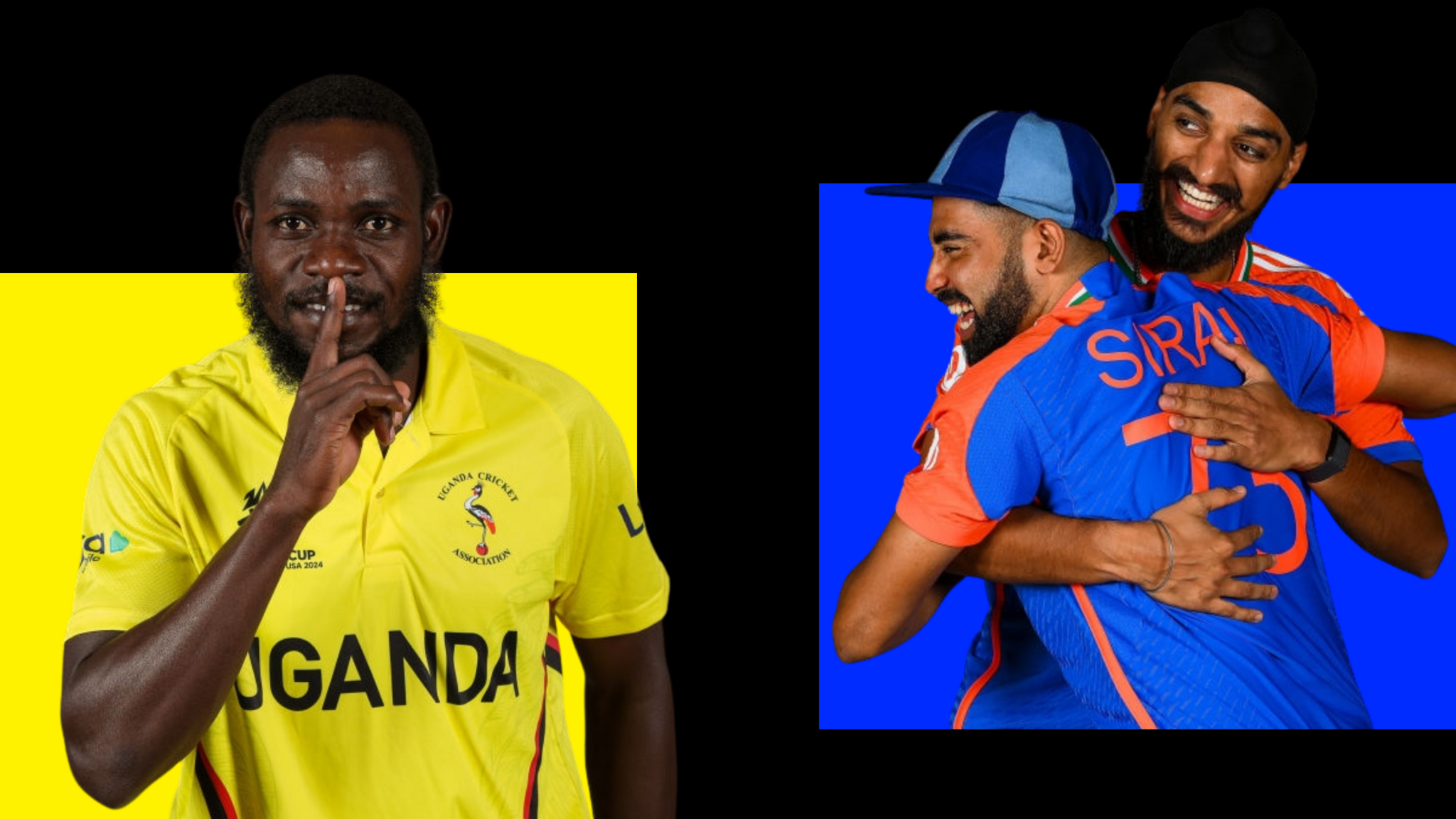American Dream puts the world into World Cup

Listen to radio commentary on all 55 matches across BBC Sounds and the BBC Sport website and app, where live text and in-play video clips will be available on selected matches
- Published
Cricket is never knowingly lacking a World Cup.
Only 195 days after the men’s 50-over World Cup ended, the T20 version gets under way on Sunday (01:30 BST). There is a women’s T20 World Cup later this year and 50-over event in 2025, not to mention various Champions Trophies, Intertoto Cups and Universal Championships. Some of those may be fictional, but you get the idea.
Whether or not familiarity breeds contempt is a matter of opinion, yet a change can be as good as a rest, and this tournament is certainly different to the grind through India last autumn.
There is a freshness about the 2024 T20 World Cup, both from the hosts and the teams taking part. This is cricket’s American Dream, with the sport finally cottoning on to the beauty of a global competition coming from the teams we never see, rather than those we always do.
It is a stretch to think this event will have the same impact on the sporting consciousness of the United States as the football World Cup of 1994 and, in reality, it is a tournament held in the Caribbean plus a portion taking place in the US.
Still, it is also part of a very tangible and undeniable growth of the game in the U-S-of-A. Major League Cricket is already coaxing players away from the English summer and has just been granted official List A status. Cricket will end a 128-year exile from the Olympics in Los Angeles in 2028.
The venues in Texas and Florida are actual cricket grounds, and the glamour comes from a pop-up stadium in New York, completed by a drop-in pitch grown in Adelaide.
BBC signs new four-year audio deal for ICC events
- Published30 May 2024
Men's T20 World Cup schedule, fixtures, times & venues
- Published29 June 2024
A sliding doors moment that consigned USA cricket to pub quiz answer
- Published29 May 2024
Eisenhower Park’s 34,000 seats could have been sold out many times over for India v Pakistan and no doubt will be pretty full for India’s other group games against Ireland and the US. However, it is worth remembering the venue is hardly Manhattan, rather 30 miles east of the city centre. How many fans wish to take that journey through rush-hour traffic for Ireland v Canada and a 10.30am start remains to be seen.
It is the US, Canada, Uganda and Papua New Guinea that bring the real intrigue, colour and stories to the tournament. It could be argued – and may well prove to be true – that their presence will result in some mis-matches, but cricket is now mirroring football and rugby in inviting the entire planet to a World Cup. Twenty teams is the biggest cricket World Cup of any kind.
One of the many problems with the 50-over World Cup is it is simply a re-run of match-ups we see over and over. Even in T20 cricket, you might feel like you have witnessed England play West Indies or Pakistan umpteen times in recent years. But 43-year-old Uganda spinner Frank Nsubuga bowling to Kane Williamson? Yes, please. Bring on another Dwayne Leverock moment.
The seemingly endless treadmill of franchise tournaments is a pretty credible stick with which to beat the shortest format of the game, though there is no denying that T20 is spreading the sport across the planet. Oman, Nepal, Namibia and Scotland will probably never play a Test, yet here they have an opportunity to compete on the grandest stage.
The teams outside of the elite will fancy their chances of landing some blows on the big boys. Ireland, cricketing giants compared to some of the nations competing, beat eventual champions England two years ago in Australia. The Netherlands caused chaos in the 50-over tournament in India and the US have just won a series against Bangladesh. Further up the food chain, Afghanistan will think they can muscle into the last eight.
There is also a purity to the T20 World Cup that sets it aside from domestic competitions, which are often just the same players shuffled into different coloured shirts. There will be no impact subs, no revolving door of overseas players jetting in and out from other leagues, just the best players trying to win a World Cup for their country. The stop-clock between overs should keep the action bumping along, too.
Cricket being cricket, there are some imperfections and idiosyncrasies.
As has become the norm, the draw is arranged so that fierce rivals England and Australia, and more lucratively, India and Pakistan meet in the first round. No other major team sport would take this approach.
The schedule is chaotic, with matches commencing at all hours and the only pattern to start times is a desire to satisfy Indian TV audiences. If they get through, India already know which semi-final they will play and the final in Barbados on 29 June gets under way at 10.30am local time.
Defending champions England are in the weaker half of the draw, under pressure after a feeble defence of their 50-over world title. A semi-final spot feels a minimum requirement to calm speculation over the futures of captain Jos Buttler and coach Matthew Mott.
The top-order looks exciting and the return of Jofra Archer is a massive boost to the potency of the bowling attack. There is the subplot of Jonny Bairstow and Phil Salt chasing the wicketkeeping spot in the Test side and the prospect of a last global event for some of the golden generation that made England double world champions.
With just two matches possible in the series against Pakistan and little T20 cricket since the last World Cup, England could be undercooked, though the Indian Premier League has disrupted the preparations of others, too.
T20 World Cup: Group A preview
- Published30 May 2024
T20 World Cup: Group B preview
- Published30 May 2024
T20 World Cup: Group C preview
- Published30 May 2024
T20 World Cup: Group D preview
- Published30 May 2024
Australia, looking to become reigning world champions in all three formats, had only nine available players for their warm-up against Namibia. India arrived in dribs and drabs for what could be the last World Cup of some of their megastars. Those two powerhouses are due to join New Zealand in the Super 8s, meaning at least one of that trio will fail to reach the last four.
If the draw goes to plan, England will have to finish in the top two of a group also including South Africa, West Indies and Pakistan. They are more than capable of doing so, even if the Windies will be hugely dangerous in home conditions and with a point to prove after failing to qualify for the 50-over World Cup.
The T20 World Cup is historically unpredictable and the best team does not always lift the trophy. The compact grounds of the Caribbean are ideal for T20 cricket and England managing director Rob Key has said the World Cup will be a “slugfest” of six-hitting.
England cracked 267-3 against the Windies in Trinidad in December and similar totals should be expected at some point. Bowlers might want to check their career prospects, spectators should tighten up their insurance policies.
In the UK, the T20 World Cup will battle for attention against the general election, Euros and Wimbledon, but it should be great fun.
More importantly, it finally puts the world into a cricket World Cup.
